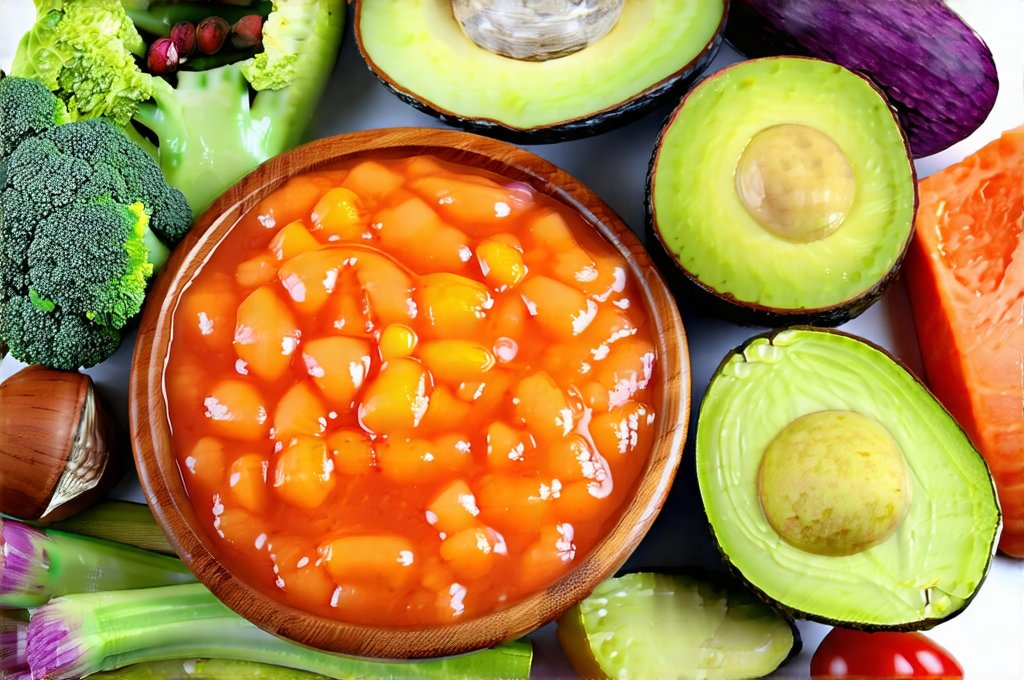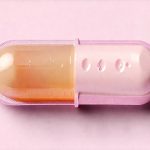Menstrual bloating is an incredibly common experience, impacting many individuals during their cycle. It’s often more than just feeling a little puffy; it can involve significant discomfort, ranging from mild abdominal pressure to genuinely debilitating pain that interferes with daily life. Understanding why this happens – fluctuations in hormones like estrogen and progesterone causing the body to retain water, changes in digestive function, and even shifts in kidney function – is the first step towards managing it effectively. But beyond understanding the cause, there’s a powerful tool at our disposal: diet. What we choose to eat (and avoid) during these phases can significantly influence how much bloating we experience, and how comfortable we feel overall. It’s about making informed choices that support your body’s natural processes rather than exacerbating them.
This isn’t about restrictive dieting or deprivation; it’s about mindful eating tailored to a specific physiological state. Many women find themselves reaching for comfort foods during their period – often those high in salt, sugar, and processed ingredients – but these are precisely the things that can worsen bloating. Instead, we can focus on incorporating foods that actively help reduce water retention, soothe digestion, and provide essential nutrients. This article will explore practical food choices to navigate menstrual bloating phases with greater ease and comfort, focusing on building a supportive relationship with your body during this time.
Foods That Support Hydration & Reduce Water Retention
Bloating often feels counterintuitive when you consider it’s linked to water retention. You might think avoiding fluids is the answer, but that’s actually the opposite of what helps! Dehydration signals to your body to hold onto any available water, making bloating worse. The key is to stay adequately hydrated with the right types of fluids and foods. Water itself remains paramount – aim for consistent sipping throughout the day rather than large gulps. Beyond plain water, herbal teas like dandelion root tea (known for its diuretic properties – though moderate consumption is key), ginger tea (soothing for digestion), and chamomile tea (for relaxation) can be incredibly beneficial.
Fruits and vegetables with high water content are also excellent choices. Think watermelon, cucumbers, celery, lettuce, berries, and citrus fruits. These provide hydration and essential vitamins and minerals without contributing to sodium overload. Potassium-rich foods play a crucial role as well. Potassium helps balance sodium levels in the body, counteracting water retention. Excellent sources include bananas (a classic choice!), sweet potatoes, spinach, tomatoes, and avocados. It’s about shifting your focus from restriction to inclusion – adding these hydrating and potassium-rich options into your diet instead of solely focusing on what to cut out.
Consider incorporating natural diuretics like asparagus and parsley in small amounts. These have mild diuretic effects that can help the body release excess water, but again, moderation is important. Be mindful of caffeine intake as it can sometimes exacerbate bloating for some individuals; if you’re sensitive, consider switching to herbal alternatives. Ultimately, staying consistently hydrated with supportive fluids and foods forms the foundation of managing menstrual bloating.
Foods To Focus On During Your Cycle
- Magnesium-rich foods: Magnesium is a mineral that helps regulate water balance and can reduce muscle cramps. Dark leafy greens (spinach, kale), nuts (almonds, cashews), seeds (pumpkin, chia), and dark chocolate (in moderation!) are good sources.
- Fiber-rich foods: Fiber aids digestion and prevents constipation, which can worsen bloating. Whole grains, fruits, vegetables, and legumes should be staples in your diet.
- Anti-inflammatory Foods: Chronic inflammation can exacerbate PMS symptoms, including bloating. Incorporate foods with anti-inflammatory properties like fatty fish (salmon, mackerel), berries, turmeric, ginger, and green tea.
The Role of Electrolytes
Electrolytes – sodium, potassium, magnesium, and calcium – are essential for maintaining fluid balance in the body. When hormone levels shift during your menstrual cycle, electrolyte balance can be disrupted, contributing to bloating. While excessive sodium intake should be limited (processed foods, salty snacks), completely cutting out sodium isn’t healthy or sustainable. Instead, focus on balancing it with electrolytes like potassium and magnesium. Sports drinks marketed for rehydration often contain high amounts of sugar; a better approach is to make your own electrolyte drink using coconut water, a squeeze of lemon juice, and a pinch of sea salt. This provides hydration and essential electrolytes without the added sugars or artificial ingredients.
Gut Health & Bloating Connection
A healthy gut microbiome plays a vital role in overall health, including digestive function. When gut bacteria are imbalanced (dysbiosis), it can lead to increased gas production and bloating. Probiotic-rich foods like yogurt (with live cultures), kefir, sauerkraut, kimchi, and kombucha can help restore balance to the gut microbiome. Prebiotic foods – those that feed beneficial gut bacteria – are equally important. These include garlic, onions, bananas, asparagus, oats, and apples. A diverse diet rich in both probiotics and prebiotics supports a healthy gut environment, which can significantly reduce bloating and improve digestive comfort during your cycle.
Foods To Limit Or Avoid During Bloating Phases
Certain foods are notorious for exacerbating bloating due to their impact on water retention, digestion, or gas production. Highly processed foods, loaded with sodium and artificial additives, should be minimized. These often contain excessive amounts of salt that cause the body to retain water. Similarly, sugary drinks (soda, juice) can lead to rapid spikes in blood sugar, contributing to inflammation and bloating. Refined carbohydrates – white bread, pasta, pastries – are quickly digested, causing blood sugar fluctuations and potentially increasing inflammation.
Cruciferous vegetables (broccoli, cauliflower, cabbage, Brussels sprouts) are incredibly nutritious but also contain compounds that produce gas during digestion. While you don’t need to eliminate them entirely, consuming them in smaller portions or cooking them thoroughly can help reduce their bloating effect. Dairy products can be problematic for some individuals, particularly those with lactose intolerance or sensitivity. If dairy seems to worsen your bloating, consider trying alternatives like almond milk, soy milk, or oat milk. Carbonated beverages introduce gas into the digestive system, directly contributing to bloating and discomfort.
Ultimately, identifying your trigger foods is key. Keep a food diary for a few cycles, noting what you eat and how you feel afterward. This can help pinpoint specific foods that consistently worsen your bloating symptoms. Remember, this isn’t about demonizing certain foods; it’s about making informed choices based on your individual body and needs.
It’s also important to be mindful of caffeine and alcohol consumption during bloating phases. Both can dehydrate the body, leading to increased water retention. Alcohol can also disrupt digestive function and exacerbate inflammation. Reducing or eliminating these substances temporarily can significantly improve comfort levels. If you struggle with this during periods of stress, consider how to keep reflux in check.
When traveling, it’s also wise to adjust your diet to avoid discomfort and unexpected flare-ups. If you find yourself needing to change things up post-bloat, consider safely reintroducing foods. For those with chronic issues, understanding what happens to your esophagus can provide valuable insight. Remember that choosing the right packaged foods is also essential; learn how to choose reflux-friendly options. And during times of illness, know foods to avoid during stomach flu to aid recovery. Finally, don’t forget the power of best foods to reduce bloating.


















